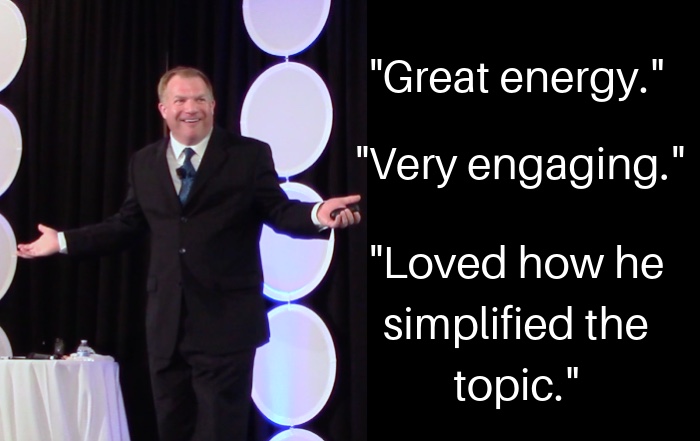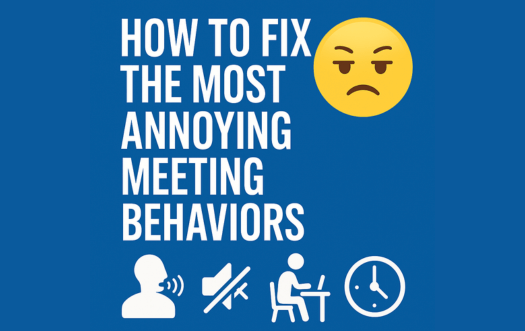 I’ve been asked for some more strategies for talkative coworkers and it sounds like it’s a growing problem. At a time when days are busy, unexpected conversations with colleagues can take up a lot of time and make you feel like you’re falling behind in your work.
I’ve been asked for some more strategies for talkative coworkers and it sounds like it’s a growing problem. At a time when days are busy, unexpected conversations with colleagues can take up a lot of time and make you feel like you’re falling behind in your work.
These are non-work discussions that happen with otherwise good people. Some are energized by conversations, while others may be looking for ways to fill the day while working a job that doesn’t challenge them. In any case, you want to be respectful but protective of your productive time.
The challenge is not appearing rude as you hope for some kind of ejection seat or trapdoor that could end the conversation. Recently, from one of my YouTube videos about talkative coworkers, a viewer asked about how to deal politely with a talkative coworker from another team or someone who stops you in corridor or cafeteria.
Consider these strategies for talkative coworkers:
Have a Prop
When I worked in TV news, I knew a photographer who was kept extremely busy. After spending hours in the field, he would sit down to catch his breath and immediately would be given more work to do by management. The same thing would happen when he would walk to the restroom.
He rightly felt that he deserved a moment or two to rest, even in the hectic world of news. He knew there were others would could perform these tasks. But the photographer didn’t want to get in trouble with his superiors. He came up with a strategy that made him appear more busy and immune to orders to do more work.
Whenever he was inside the station, the photographer always made sure he had a piece of paper and a videotape in his hand. The bosses would then assume he was working on a story, so they wouldn’t ask him to do more work.
A similar thing might work for you. Can you have a folder or a piece of paper that you carry around? When you need to end a conversation, you hold up the folder and say, “So sorry, gotta go.” The other person will mentally fill in the blanks and assume you must have something urgent to do.
Schedule Catch Up Time
One of my other strategies for talkative coworkers is to try to control the frequency of the conversations. This acknowledges that these chats can offer value when it comes to your career and networking. A good social game can help you professionally.
But instead of talking to them for 5 minutes every day, in the break room, you pick a day to catch up. You call it something like, “Catch up Tuesday.”
When approached, you say something like, “I’ve got to run but can we connect on Tuesday?”
When Tuesday comes around, you approach the person and say, “It’s catch up Tuesday. It’s a busy week for me but I want to take some time to see how you’re doing.”
This may help train the other person to focus their conversations with you at one time during the week, rather than any time. It is important that you actually have this talk in the future. Don’t keep deferring it to another time.
Budget Time for Interruptions
When you work with others, hallway and break room conversations may be inevitable. How can we make sure they’re not contributing to your stress level on busy days?
I become nervous when I have a packed schedule and suddenly have to add in these conversations.
What works well is to take time out of your schedule, like 15 minutes every day, for these interruptions. You block off that time on your calendar. Think of it like a buffer that prevents you from becoming overwhelmed.
You may not need this extra time but it serves as a barrier in your schedule, so you don’t fall into a panic when a hallway conversation goes longer than expected.






